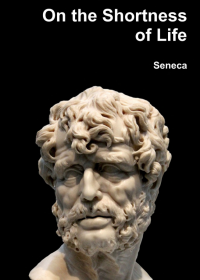“Because even this space that has been granted to us rushes by so speedily and so swiftly that all save a very few find life at an end just when they are getting ready to live” — Seneca
We are stingy with our money but when it comes to time, our only gift of life, we don’t hesitate to give it away generously. We believe there is plenty of it in the bank and how does it hurt to give away few hours to binge watch our favorite shows, a few hours to watch our favorite sports team get destroyed and a few hours to catchup on social media.
Life is not short if it’s not wasted. Time is all we have and yet we squander it away in things that do not give us joy or satisfaction. Seneca distills much of the agony we experience day to day:
It is not that we have a short space of time, but that we waste much of it. Life is long enough, and it has been given in sufficiently generous measure to allow the accomplishment of the very greatest things if the whole of it is well invested.
If you think about it, it’s startling how we fancy all the time in the world to do the things we want to do. Fear forces us to lead a bogus life. A life lived in fear can be anything but authentic. Seneca puts it beautifully:

“You have all the fears of mortals and all the desires of immortals.“
Future is uncertain and past is past and present is all we have, that’s why present is a gift. In other words, past is a voided check and future is a lottery ticket, it’s a good idea not to pin our life on them.
“They form their purposes with a view to the distant future; yet postponement is the greatest waste of life; it deprives them of each day as it comes, it snatches from them the present by promising something hereafter.“
On accumulating wealth beyond necessities, Seneca extols the minimalist lifestyle and admonishes amassing things. Life is not short, it becomes short with distractions.
“However much you heap up for it will not mark the end of greed, only a stage in it. So the man who restrains himself within the bounds set by nature will not notice poverty; the man who exceeds these bounds will be pursued by poverty however rich he is.“
Seneca calls on us to be cautious in multitasking, many pursuits at once distract the mind, as the proverb goes, “if you chase two rabbits at once, you will lose them both”
“no one pursuit can be successfully followed by a man who is preoccupied with many things—eloquence cannot, nor the liberal studies—since the mind, when distracted, takes in nothing very deeply, but rejects everything that is, as it were, crammed into it.”
“Remember how long you’ve been putting this off, how many extensions the gods gave you, and you didn’t use them. At some point you have to recognize what world it is that you belong to; what power rules it and from what source you spring; that there is a limit to the time assigned you, and if you don’t use it to free yourself it will be gone and will never return.”
Meditations by Marcus Aurelius
Not only Seneca reminds us how to live but also how to die:
“It takes the whole of life to learn how to live, and—what will perhaps make you wonder more—it takes the whole of life to learn how to die.“